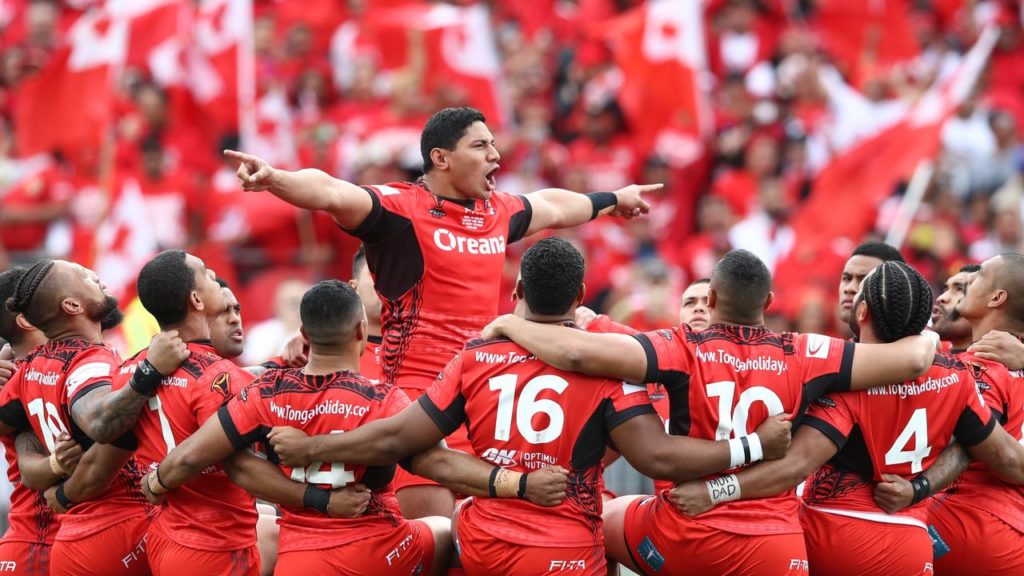
The likes of former All Black Charles Piutau and ex-Wallaby Israel Folau can play for Tonga from 2022 after a groundbreaking World Rugby council vote last month.
The council voted to amend World Rugby’s eligibility rules to allow players to change Test teams during their career after a three-year stand-down period and providing they have “a genuine, close, credible and established national link” to the country they now wish to represent (such as having a parent or grandparent who was born there). Under the previous regulations, a Test player could only change allegiance through an unintended Olympic sevens loophole.
The revised eligibility regulations will apply from 1 January.
To pass, the proposal needed 75% of the council members to vote yes and with tier-one nations having more votes than those in tier two, many thought it was unlikely to happen. Why? Well, this amendment will strengthen the Pacific Island nations, who will soon be able to select former All Blacks and Wallabies players, making them a far greater threat to the likes of Italy and Scotland.
Fortunately, enough World Rugby council members did the right thing by voting for more relaxed eligibility rules that will benefit players and make international rugby stronger.
Tonga, for instance, can now select former All Blacks fullback Charles Piutau, who earned 17 Test caps from 2013 to 2015. Piutau was born in Auckland, has Tongan parents and desperately wants to play Test rugby for Tonga.
They can also call up former Wallabies back Israel Folau, who was born in Sydney, has Tongan parents and played the last of his 73 Tests in 2018.
Centre Malakai Fekitoa, who played 24 Tests for the All Blacks from 2014 to 2017, is also now available to represent Tonga, his country of birth.
Another midfielder, Ngani Laumape, who ended his All Blacks career when he joined Stade Francais in 2020, has Tongan parents and can play for ʻIkale Tahi from 2024. (Responding to a recent tweet asking who is the best No 12 in the Autumn Nations series, Laumape replied, ‘Open up the eligibility rules and let’s find out’.)
That gives you some idea of the potent team Tonga could field in the near future.
In July 2020, the All Blacks scored 16 tries in their 102-0 thrashing of Tonga at Auckland’s Mount Smart Stadium in a match that was anything but a ‘Test’. While Tonga were without several first-choice players that night, changing the eligibility rules is a huge step towards preventing similar scorelines in future.
World Rugby’s decision means rugby union can also have its Jason Taumalolo moment. Taumalolo was a rugby league lock, born in Auckland to Tongan parents. He made his Test debut for Tonga in 2013 and represented them at the Rugby League World Cup that year.
In 2014, he was selected for New Zealand and wore the black jersey in 10 Tests over the next four years.
In 2017, Taumalolo decided he wanted to play for Tonga and not New Zealand at the World Cup and was able to do so thanks to International Rugby League’s relaxed eligibility rules.
Almost overnight, Taumalolo – and Andrew Fifita, who switched back from Australia – helped Tonga become an international force in rugby league, which is dominated by Australia, New Zealand and England.

While Australia went on to lift the 2017 World Cup, the tournament is remembered for the massive impact made by Tonga, who beat New Zealand 28-22 to top their pool and lost 20-18 to England in the semi-finals.
As you’d expect, rugby league was on the front and back pages of Tongan newspapers and the 13-man code got a massive shot in the arm.
Piutau, Folau, Fekitoa and Laumape can have a similar impact on rugby union in Tonga.
And the odds of a Pacific Islands nation reaching the semi-finals of a Rugby World Cup in the not-too-distant future have just been shortened.
- Rugby Pass